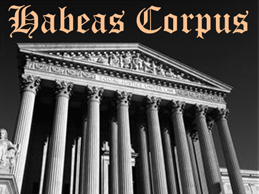Lawyer's Overview to Habeas Corpus: Protecting Your Freedom and Legal rights
Comprehending the Role of a Post-Conviction Lawyer in Looking For Justice After a Criminal Conviction
In the complex landscape of post-conviction lawful proceedings, the function of a post-conviction attorney is essential in browsing the path to justice after a criminal conviction - top hawaii federal lawyers. As the search of justice prolongs past the confines of first procedures, the duty of a post-conviction attorney emerges as a sign of hope for those seeking to remedy oppressions and redeem their legal rights within the lawful system.
Post-Conviction Lawyer's Investigative Job
Post-conviction attorneys take part in thorough investigatory work to uncover new evidence, step-by-step errors, or misconduct that can possibly result in rescinding a conviction. This investigative phase is important in the post-conviction process as it aims to determine any type of ignored information or legal bad moves that might have affected the outcome of the first test. Post-conviction lawyers dive right into instance data, witness testimonies, and lawful documentation with a fine-tooth comb, searching for any type of disparities or irregularities that can be premises for charm.
Via complete examination, post-conviction legal representatives aim to shed light on prospective oppressions that may have happened during the original test. They might carry out interviews, talk to professionals, and testimonial forensic proof to construct a compelling instance for their clients. By scrutinizing every facet of the legal procedures, post-conviction lawyers function tirelessly to uncover any type of elements that may have influenced the verdict. Inevitably, their investigatory job plays an essential role in the search of justice and the prospective reversal of wrongful sentences.
Crafting Appeals and Petitions
In the quest of justice after a conviction, proficient legal representatives diligently craft charms and applications to present engaging disagreements for the reconsideration of lawful choices. Crafting charms and applications requires a deep understanding of the legal system, focus to detail, and tactical thinking. Post-conviction attorneys evaluate trial documents, identify possible mistakes or offenses of legal rights, and develop lawful arguments to test the conviction or sentence.
When crafting a charm, lawyers concentrate on highlighting lawful errors that might have impacted the result of the instance. They research instance legislation, statutes, and legal criteria to sustain their arguments. Requests, on the various other hand, may involve offering brand-new proof that was not offered throughout the test or showing modifications in the legislation that warrant a review of the conviction.
Additionally, post-conviction lawyers must stick to rigorous procedural regulations and target dates when filing charms and petitions. They have to provide their disagreements plainly and persuasively to convince the court to grant alleviation to their clients. Through meticulous crafting of allures and applications, post-conviction lawyers aim to secure justice for individuals that have been wrongfully convicted or unfairly sentenced.

Seeking Post-Conviction Alleviation
Post-conviction alleviation encompasses an array of lawful devices developed to test the legitimacy of a conviction or sentence. Post-conviction lawyers play a crucial duty in browsing these intricate treatments, guaranteeing that all lawful options are discovered to correct injustices that might have taken place throughout the trial or sentencing phase.
One typical kind of post-conviction alleviation is filing a request for post-conviction relief, typically based on claims of ineffective aid of advise, prosecutorial misconduct, newly uncovered evidence, or constitutional violations. These applications call for a complete analysis of the test document, legal research study, and influential advocacy to persuade the court to grant alleviation. Experienced post-conviction legal representatives have the skills and knowledge essential to determine feasible legal insurance claims, conduct examinations, and present compelling disagreements to protect relief for their customers. By carefully going after post-conviction alleviation, these attorneys make every effort to remedy miscarriages of justice and maintain the principles of justness and due process in the criminal justice system (Attorney).
Using Forensic Proof
When testing a conviction or sentence, the tactical usage of forensic evidence can be a powerful device in post-conviction legal process. Forensic evidence includes a large range of scientific methods utilized to investigate criminal activities and establish facts in court. Post-conviction legal representatives can leverage forensic evidence to test the legitimacy of convictions by presenting new scientific findings that were not offered during the original trial.

Taking Part In Sentence Adjustments
Post-conviction legal representatives might discover the possibility of sentence alterations as a legal method to deal with disproportionate or unfair sentences bied far in criminal cases. Sentence adjustments include looking for modifications to the terms of an accused's sentence after a sentence has taken area. These modifications can include decreasing the size of site web a sentence, altering the kind of penalty imposed, or discovering different sentencing choices.
Post-conviction lawyers can pursue sentence modifications through different lawful devices, such as filing activities for sentence decrease, appealing for compassionate release, or discussing appeal deals for reduced sentences. They have to meticulously evaluate the scenarios of the situation, examine the legal premises for seeking a modification, and present compelling debates to the court supporting the requirement for a revised sentence.
Engaging in sentence modifications calls for a detailed understanding of criminal law, punishing standards, and the specific treatments associated with seeking post-conviction relief. Post-conviction legal representatives play a crucial function in supporting for reasonable and simply results by tough sentences that are unduly rough or do not line up with the principles of justice.
Conclusion
In verdict, the function of a post-conviction lawyer is important in seeking justice after a criminal conviction. Through investigative work, crafting charms and petitions, pursuing post-conviction relief, using forensic proof, and taking part in sentence alterations, these attorneys play an important duty in supporting for their customers and making sure that their civil liberties are supported within the criminal justice system. Their dedication and know-how are crucial in browsing the complexities of post-conviction process and accomplishing a fair result for people encountering criminal sentences.